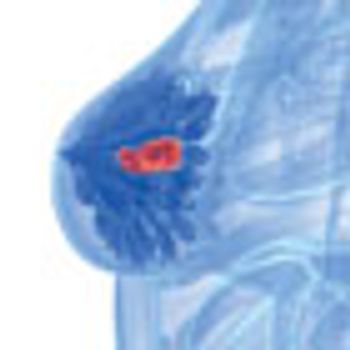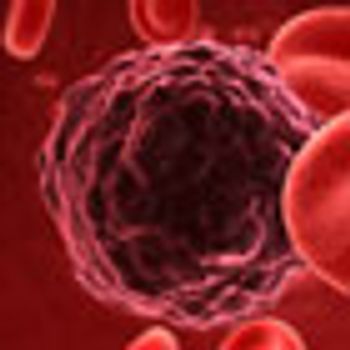
For myself, one birthday changed the course of my life.

A new study has found that a psychosocial telephone counseling intervention helps improve mood and quality of life in cervical cancer survivors.

Are you looking for financial assistance with direct medical costs (co-pays, deductibles), related non-medical costs (transportation, gas, child care) or daily living expenses (rent, utilities)? With effort and persistence, you can find some help.

ASCO's report identifies progress and challenges

Results of a follow up study have shown that when women were taught stress management techniques early in their breast cancer treatment, their mood and quality of life continued to improve up to 15 years later.

Recent advancements in the treatment of ovarian cancer, including surgical techniques, the approvals of bevacizumab and olaparib, and intraperitoneal chemotherapy (IP), have led the National Comprehensive Cancer Network to make changes to their clinical practice guidelines in its 20th annual edition.

In this roundtable, representatives from Sharsheret, the Cancer Support Community, the Young Survival Coalition, and Living Beyond Breast Cancer discuss the impact of metastatic breast cancer.

A new study has found that African American patients with cancer feel and describe depression differently than their Caucasian counterparts.

The continuing contentious debate about screening for prostate cancer remains top of mind among the public and lay press, but, Leonard G. Gomella, MD, told attendees at the 8th International Prostate Cancer Congress, the decision to screen or not to screen boiled down to "using common sense, shared decision making, and choosing the right patients to screen."

Based on results from a new study, researchers now have a better understanding about the mechanisms behind the link between aspirin, NSAIDs, and colorectal cancer prevention.

A new study hopes to gain some clarity on what causes some breast cancer patients to feel "foggy" when receiving chemotherapy.

Recent statistics predict lifetime probabilities.

Karen Chelcun Schreiber was first touched by gastric cancer in 1982, when her mother Elaine died of the disease at age 52. She was impacted again in 2007 when her brother Greg was diagnosed with Stage IV gastric cancer. He was 56.

Big data just got bigger in the realm of cancer survivorship research.

Following treatment with high-dose chemotherapy and stem cell transplant, patients with relapsed and difficult- to-treat Hodgkin lymphoma who received brentuximab vedotin had an unprecedented 50% higher likelihood of continuing to experience progression- free survival (PFS) at 2 years.

Common myths about lung cancer.

The FDA has issued a safety advisory warning healthcare professionals not to use Treanda (bendamustine HCl) Injection with closed system transfer devices (CSTDs), adapters, and syringes containing polycarbonate or acrylonitrile-butadiene-styrene (ABS).

Tyrosine-kinase inhibitors (TKIs) are a mainstay of therapy for patients with advanced thyroid cancer, more than doubling progression-free survival. Unfortunately, their use is limited not only by gastrointestinal adverse events (AEs), such as diarrhea and anorexia, but also by significant weight loss, which has been reported in 10% to 50% of patients treated with TKI therapies.

According to a recent retrospective cohort analysis of a large national database, patients with a history of breast cancer have a higher risk of developing thyroid cancer than do the general population, particularly if they receive adjuvant radiation therapy.

Having a family history of prostate cancer among first-degree relatives may also increase a women's risk of developing breast cancer, according to a new study.

Optimistic messages convey a higher level of compassion.

The FDA has approved nivolumab (Opdivo) for the treatment of patients with advanced squamous non–small cell lung cancer (NSCLC) who have progressed on or after platinum-based chemotherapy.

The FDA's approval of panobinostat (Farydak) for multiple myeloma, the first histone deacetylase (HDAC) inhibitor to be approved in this space, provides a new option and new hope for patients with this disease, Walter M. Capone, President and Chief Executive Officer of the Multiple Myeloma Research Foundation, said.

Results of a new study may help boost lung cancer clinical trial enrollment.

With a career as remarkable and distinguished as Joan Lunden's, it's really no surprise that she took on her latest challenge-a diagnosis of triple-negative breast cancer-with such determination and grace.

The reduction of breast cancer risk with 5 years of tamoxifen does not outweigh the lack of a mortality benefit, according to J. Michael Dixon, MD, OBE, who discussed his position at the 32nd Annual Miami Breast Cancer Conference on Sunday.

Eight signs now identified.

Moving early to diagnose and treat lymphedema after breast cancer treatment can reverse this side effect or prevent it from becoming more severe.

Pain in patients with breast cancer who have had surgery or who have late-stage disease is common, and managing it effectively can be difficult.

Two new studies highlight the need for cancer survivors and their families to get guidance on healthy lifestyle changes and when the best time might be to integrate them.